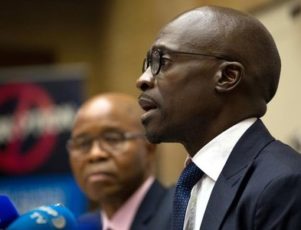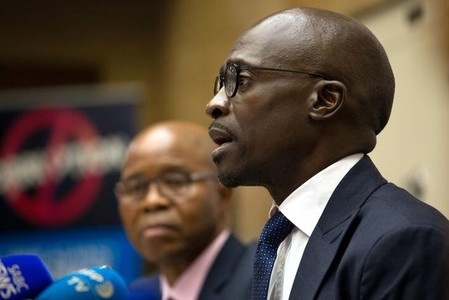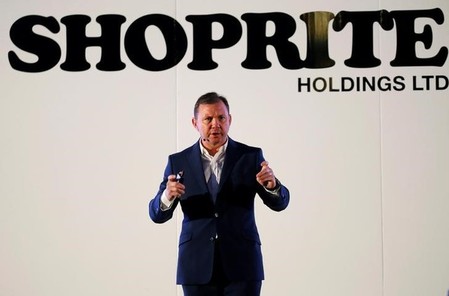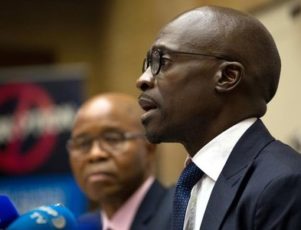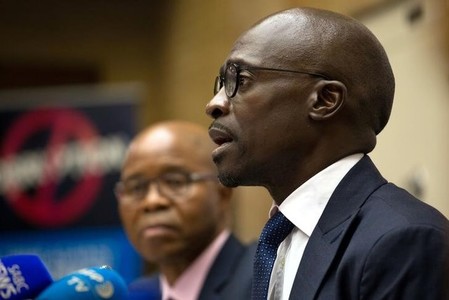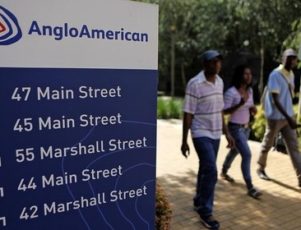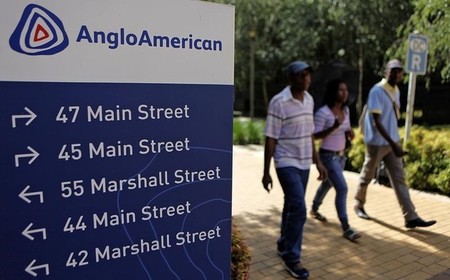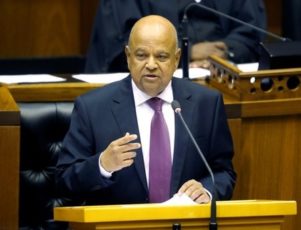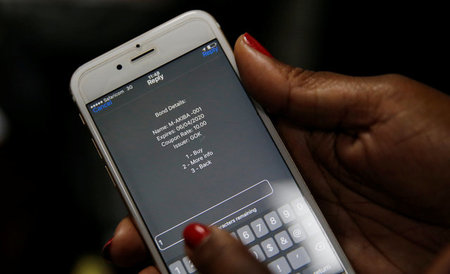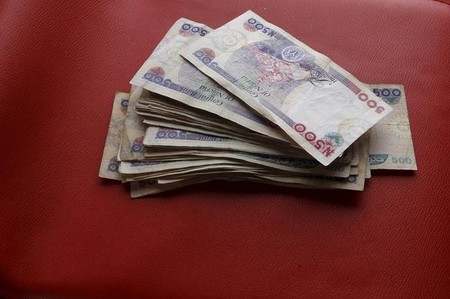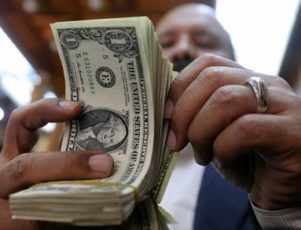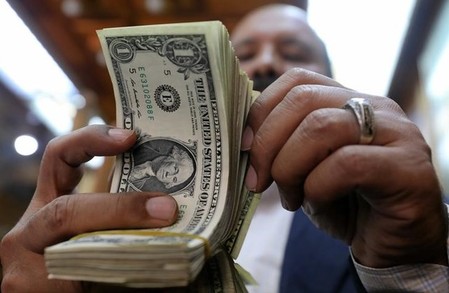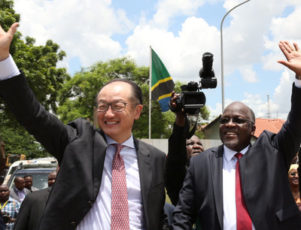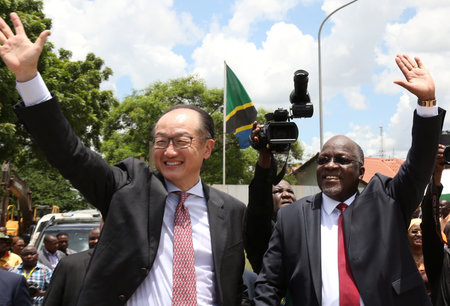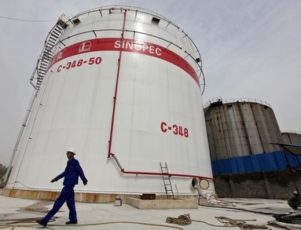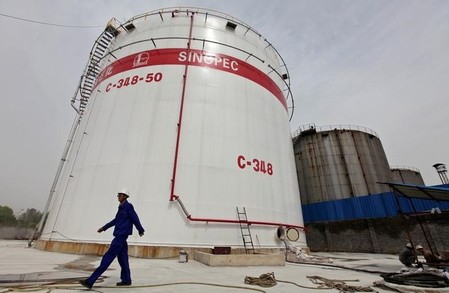By Mfuneko Toyana and Sujata Rao
JOHANNESBURG/LONDON (Reuters) – South African President Jacob Zuma asked Finance Minister Pravin Gordhan on Monday to return home “immediately” from an investor roadshow abroad, reviving talk of a cabinet reshuffle and unnerving investors who see Gordhan as an emblem of stability.
The rand fell more than 3 percent against the dollar, its biggest one day fall since Nov. 10, South African bonds tumbled and banking shares slid more than 3 percent after Zuma’s office said Gordhan had been recalled. It did not give a reason, but a government source said the presidency had not given permission for the trip.
The decision comes a day before a court is due to rule on a request by Gordhan for a declaratory judgment that he cannot interfere with decisions by banks to cut ties with businesses owned by the Gupta brothers, who are friends of Zuma.
“Zuma has instructed the Minister of Finance, Mr Pravin Gordhan, and Deputy Minister Mcebisi Jonas to cancel the international investment promotion roadshow to the United Kingdom and the United States and return to South Africa immediately,” a statement from the president’s office said.
Business executives and union leaders had accompanied Gordhan to London to woo potential investors for whom he is a reassuring figure given South Africa’s weak economic growth and tensions within the ruling African National Congress (ANC) that have put its investment-grade credit rating at risk.
Fraud charges brought against Gordhan and then dropped last year, prompting accusations of a political “witch-hunt”, badly rattled financial markets, as did rumours before last month’s budget speech that he might be moved from the Treasury.
Speaking in London, Gordhan — who the Treasury said will return to South Africa on Tuesday — said he was “just asked to come back”. Asked if he expected a cabinet reshuffle, Gordhan said: “That’s the boss’s prerogative.”
Koon Chow, emerging debt strategist at Swiss asset manager UBP, said Gordhan was jovial and relaxed at Monday’s roadshow.
“He knows investors like him and he likes us,” said Chow. Asked why he was being called back to South Africa, “he said ‘I do what my boss tells me'”, Chow added.
UNCERTAINTY
The main opposition Democratic Alliance said the decision to recall Gordhan “is so bizarre that it appears, at best, calculated to humiliate the minister or, at worst, to suggest that the minister is about to be fired”.
The ruling ANC meanwhile said the decision had not been discussed at its weekend meeting.
South Africa’s banking industry association said Zuma’s order risked a sovereign credit rating downgrade, while the cost of insuring South African government debt against default hit its highest level in nearly seven weeks.
Jabulane Mabuza, head of Business Unity South Africa and chairman of Telkom, who was with Gordhan in London, said in a text message: “At this point only presidency can give clarity on the why.”
Mabuza said Gordhan and his team had met about 60 asset managers in London and had planned to meet some 200 investors with a total $10 trillion in assets under management during the non-deal roadshow.
Gordhan first served as finance minister from 2009 to 2014 and was reappointed by Zuma in December 2015 to calm markets spooked by the president’s decision to replace respected finance minister Nhlanhla Nene with a little-known politician.
But South African media reports suggest Zuma and Gordhan have an uneasy relationship, though the president has denied suggestions he is “at war” with his finance minister.
“I believe today could be a test of the water to undertake a reshuffle,” said Peter Attard Montalto, an emerging markets analyst at Nomura in London.
Some pundits say Gordhan is the target of political pressure from a faction allied to Zuma, which has criticised his plans to rein in government spending as the economy stagnates and also rapped his running of the tax agency. Gordhan has wrangled for months with the head of the agency.
MARKET MOVES
A Pretoria court is due to hear on Tuesday Gordhan’s request for a declaratory judgment that he cannot interfere with decisions by South Africa’s major banks to cut their ties with businesses owned by the three Indian-born Gupta brothers.
Gordhan has said the brothers have repeatedly asked him to intervene to have their accounts reopened.
Allegations that the Guptas wielded undue influence over Zuma were investigated last year by the Public Protector, a constitutionally mandated anti-corruption watchdog. Zuma has said the Guptas are his friends, but denies anything improper about the relationship.
Africa’s most industrialised economy faces credit rating reviews in April and June that could see it slip into “junk” territory because of sluggish growth and political uncertainty.
“Today’s market moves underline the importance of Mr. Gordhan to investor confidence in South Africa,” Capital Economics Africa economist John Ashbourne said in a note.
“And even if the minister is not removed, today’s events show that President Zuma is totally unconcerned with the effect that his often erratic policymaking style has on markets.”
(Additional reporting by Ed Cropley, Ed Stoddard, Olivia Kumwenda-Mtambo, Joe Brock in Johannesburg, Wendell Roelf in Cape Town, Marc Jones and Karin Strohecker in London; Writing by James Macharia; Editing by Catherine Evans)
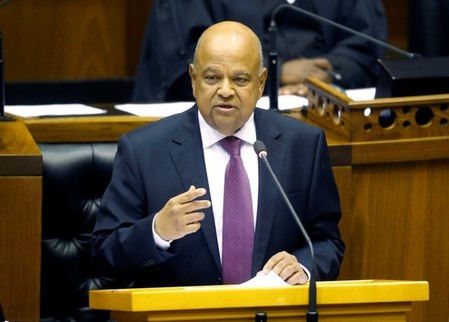
Read more

